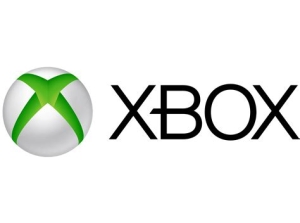From The Blog
-
ConnectWise Slash and Grab Flaw Once Again Shows the Value of Input Validation We talk to Huntress About its Impact
Written by Sean KalinichAlthough the news of the infamous ConnectWise flaw which allowed for the creation of admin accounts is a bit cold, it still is one that…Written on Tuesday, 19 March 2024 12:44 in Security Talk Read 606 times Read more...
-
Social Manipulation as a Service – When the Bots on Twitter get their Check marks
Written by Sean KalinichWhen I started DecryptedTech it was to counter all the crap marketing I saw from component makers. I wanted to prove people with a clean…Written on Monday, 04 March 2024 16:17 in Editorials Read 1515 times Read more...
-
To Release or not to Release a PoC or OST That is the Question
Written by Sean KalinichThere is (and always has been) a debate about the ethics and impact of the release of Proof-of-Concept Exploit for an identified vulnerability and Open-Source…Written on Monday, 26 February 2024 13:05 in Security Talk Read 1064 times Read more...
-
There was an Important Lesson Learned in the LockBit Takedown and it was Not About Threat Groups
Written by Sean KalinichIn what could be called a fantastic move, global law enforcement agencies attacked and took down LockBit’s infrastructure. The day of the event was filled…Written on Thursday, 22 February 2024 12:20 in Security Talk Read 1013 times Read more...
-
NetSPI’s Offensive Security Offering Leverages Subject Matter Experts to Enhance Pen Testing
Written by Sean KalinichBlack Hat 2023 Las Vegas. The term offensive security has always been an interesting one for me. On the surface is brings to mind reaching…Written on Tuesday, 12 September 2023 17:05 in Security Talk Read 2083 times Read more...
-
Black Kite Looks to Offer a Better View of Risk in a Rapidly Changing Threat Landscape
Written by Sean KalinichBlack Hat 2023 – Las Vegas. Risk is an interesting subject and has many different meanings to many different people. For the most part Risk…Written on Tuesday, 12 September 2023 14:56 in Security Talk Read 1798 times Read more...
-
Microsoft Finally Reveals how they Believe a Consumer Signing Key was Stollen
Written by Sean KalinichIn May of 2023 a few sensitive accounts reported to Microsoft that their environments appeared to be compromised. Due to the nature of these accounts,…Written on Thursday, 07 September 2023 14:40 in Security Talk Read 2073 times Read more...
-
Mandiant Releases a Detailed Look at the Campaign Targeting Barracuda Email Security Gateways, I Take a Look at What this all Might Mean
Written by Sean KalinichThe recent attack that leveraged a 0-Day vulnerability to compromise a number of Barracuda Email Security Gateway appliances (physical and virtual, but not cloud) was…Written on Wednesday, 30 August 2023 16:09 in Security Talk Read 2055 times Read more...
-
Threat Groups Return to Targeting Developers in Recent Software Supply Chain Attacks
Written by Sean KalinichThere is a topic of conversation that really needs to be talked about in the open. It is the danger of developer systems (personal and…Written on Wednesday, 30 August 2023 13:29 in Security Talk Read 1831 times Read more...
Recent Comments
- Sean, this is a fantastic review of a beautiful game. I do agree with you… Written by Jacob 2023-05-19 14:17:50 Jedi Survivor – The Quick, Dirty, and Limited Spoilers Review
- Great post. Very interesting read but is the reality we are currently facing. Written by JP 2023-05-03 02:33:53 The Dangers of AI; I Think I Have Seen this Movie Before
- I was wondering if you have tested the microphone audio frequency for the Asus HS-1000W? Written by Maciej 2020-12-18 14:09:33 Asus HS-1000W wireless headset impresses us in the lab
- Thanks for review. I appreciate hearing from a real pro as opposed to the blogger… Written by Keith 2019-06-18 04:22:36 The Red Hydrogen One, Possibly One of the Most “misunderstood” Phones Out
- Have yet to see the real impact but in the consumer segment, ryzen series are… Written by sushant 2018-12-23 10:12:12 AMD’s 11-year journey to relevance gets an epic finish.
Most Read
- Microsoft Fail - Start Button Back in Windows 8.1 But No Start Menu Written on Thursday, 30 May 2013 15:33 in News Be the first to comment! Read 116473 times Read more...
- We take a look at the NETGEAR ProSafe WNDAP360 Dual-Band Wireless Access Point Written on Saturday, 07 April 2012 00:17 in Pro Storage and Networking Be the first to comment! Read 87387 times Read more...
- Synology DS1512+ Five-Bay NAS Performance Review Written on Tuesday, 12 June 2012 20:31 in Pro Storage and Networking Be the first to comment! Read 81934 times Read more...
- Gigabyte G1.Sniper M3 Design And Feature Review Written on Sunday, 19 August 2012 22:35 in Enthusiast Motherboards Be the first to comment! Read 80255 times Read more...
- The Asus P8Z77-M Pro Brings Exceptional Performance and Value to the Lab Written on Monday, 23 April 2012 13:02 in Consumer Motherboards Be the first to comment! Read 70888 times Read more...
Displaying items by tag: AntiCompetitive
Microsoft’s Cloud Feature Runs at a Loss According to Testimony to FTC
So, it seems that under direct questioning Microsoft has been forced to admit that cloud gaming is not as big of a deal as they have been saying it is. We have long held that their generous 10-year cloud licensing deal for cloud gaming was not an honest attempt at competition. After all cloud gaming represents a little less than 1% of the total gaming market. Now Sarah Bond has admitted that it is not a popular option and that it is most commonly used as a feature for Microsoft consoles.
Why the Microsoft Activision Blizzard Deal is such a Big Deal
Unless you have been living under a rock or just do not care about gaming at all, you have probably heard a lot about the Microsoft Activision merger/acquisition. The deal, one of the largest in history, is a monster. Microsoft wants to buy, lock, stock and barrel, the Activision Blizzard game development company for a whopping $68.7 Billion (with a “b”). The deal would give Microsoft complete control over everything Activision/Blizzard. Now for some this might not be a bad thing if you look at it from just a game perspective or if you are just a PC gamer. The problem comes when you get into how games are really developed and how game developers work with component and console makers to ensure their games work properly.
FTC Changes the Focus from Cloud to Xbox Vs PlayStation in Microsoft Activision Blizzard Deal (as it should be)
In our coverage of the Microsoft Activision/Blizzard deal we have often wondered why so many of the groups that approved the deal, and one that opposed it, focused only on cloud gaming. We saw the UK say that the deal was bad for cloud gaming while others stated that a 10-year licensing deal for cloud gaming services that Microsoft agreed to made everything all better. As we looked over the approvals and oppositions this odd focus on what represents less than 1% of the gaming market seemed so out of place that started to feel that the opposition was just a token resistance and the deal (which is a bad thing) was just going to get rubber stamped.
Concerned about Android Tracking? You Can Remove your Ad ID in Android 12 and Up to Help with This
After Google talked about their response to Apple requiring user acceptance for cross app tracking on mobile devices, the internet sort of exploded with different articles about the pros and cons of each. We wrote about this 2 days ago and gave out thoughts on both solutions. You can read the full article, or just read on for the summation. In short, Apple requiring a user to explicitly allow an app to perform cross tracking and data collection is better than Google’s current plan to collect everything and allow controlled access to the data via API. Google’s plan has even brought up the specter of anti-competition laws as they would literally control all the data on a mobile device. Yes, it is that bad.
Apple Wins A Ban On The Galaxy Tab 7.7 In The EU, Despite Prior Art And Clear Differences
 |
Ok, so I have this truck that I designed it is about 20 feet long and a little over 10 feet tall. The truck weighs 4 tons and comes only in black. I want to sue you because you built a sub-compact car that has four tires. This is the equivalent of what the “High” court in Germany has done by banning the Galaxy Tab 7.7 claiming that it resembles the iPad. The court’s reasons? Well they seem to think that the Tab 7.7 has sides and a back that looks like the iPad which makes it an infringing product and warrants a complete ban on the product throughout the European Union. Makes sense right?
Google Fined $22.5 Million For Traking Safari Users, Too Bad It Will Not Stop This In The Future
 |
Google has agreed to settle with the FTC over accusations that they bypassed security features in Safari to track users’ internet habits. Although Google often comments that they maintain the highest privacy and security standards for its users they have been repeatedly in the news for violations of privacy. Let’s face it, Google wants and needs data they really do not care so much about how they get it as long as they do. They have been in trouble over street view, Google Maps, Google Docs, Chrome, and now for tracking people when they specifically use features to prevent them from being tracked.
Foxconn CEO Talks Up Apple's Next Gen iPhone; What is Happening Here?
 We have written more than our share of articles showing the decline of Apple as a major player in the market. We would never go so far as to say that we are predicting the “death of Apple” like so many analysts do about the PC on a monthly basis. The market needs both Apple and Microsoft to thrive (and really both are “PCs”). What we are talking about is the massive popularity of Apple mobile products will continue to decline as their rivals begin to bring faster and more compelling technology to the market. Right now Apple’s biggest method of competition is the law suit which they wield around the globe to prevent competitors from releasing their designs (all in the name of protecting IP).
We have written more than our share of articles showing the decline of Apple as a major player in the market. We would never go so far as to say that we are predicting the “death of Apple” like so many analysts do about the PC on a monthly basis. The market needs both Apple and Microsoft to thrive (and really both are “PCs”). What we are talking about is the massive popularity of Apple mobile products will continue to decline as their rivals begin to bring faster and more compelling technology to the market. Right now Apple’s biggest method of competition is the law suit which they wield around the globe to prevent competitors from releasing their designs (all in the name of protecting IP).
Apple Manager Arrested; A sign of things to come?
 Have you ever wondered how Apple does it? I mean how they really get the best information. Those low prices and just seem to be on top of things so well. Many have said that Steve Jobs just has his finger on the pulse of today’s computer consumers. Now, I will grant that Steve is a marketing genius but there has to be something else. One of these things was the former inclusion of Google CEO Eric Schmidt on Apple’s board (until an obvious conflict of interest came up) this gave Apple some amazing information into consumer wants and trends (after all Google is in the business of selling ads and collects a ton of data for this purpose). But we have always had a feeling that there was something else going on behind the scenes.
Have you ever wondered how Apple does it? I mean how they really get the best information. Those low prices and just seem to be on top of things so well. Many have said that Steve Jobs just has his finger on the pulse of today’s computer consumers. Now, I will grant that Steve is a marketing genius but there has to be something else. One of these things was the former inclusion of Google CEO Eric Schmidt on Apple’s board (until an obvious conflict of interest came up) this gave Apple some amazing information into consumer wants and trends (after all Google is in the business of selling ads and collects a ton of data for this purpose). But we have always had a feeling that there was something else going on behind the scenes.




